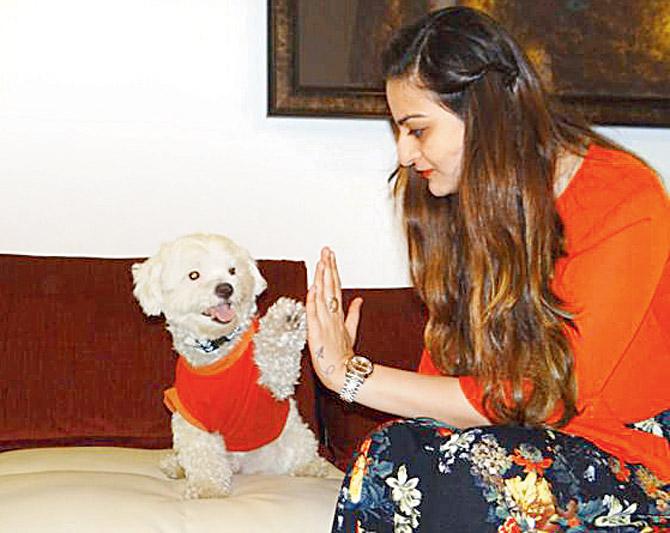More Indians are adopting, rather than buying, pets. But are they equipped to adequately care for their four-legged friend?

While Indian dog owners are becoming increasingly amenable to adoption - roughly 6 lakh dogs are adopted every year, as per data from the India International Pet Trade Fair - many find themselves unable to cope with the consequences of their well-meaning decision. "All too often, dog parents are surprised to find that their dog is not all cuddles, long walks and wagging tails. They don't understand that bringing home a dog, whether from a kennel or shelter, is a decision for life, and involves a lot of responsibility and fair share of sacrifices," says Mulund-based veterinarian, Natasha Couto. "As a result, I see so many dogs being returned to the shelter or left to fend for themselves on the street, where they suffer a pitiable fate." Before adopting your next pooch, experts recommend that you take the following points into account, to lay the foundation for a terrific, life-long relationship.
ADVERTISEMENT

Puppy or adult?
"Our organisation sees many adoptive families request for puppies that will grow up with the family. Often, pet owners are bowled over by how irresistible the puppy looks and believe that it will be easier to train a puppy to the ways of the household. However, there are certain advantages of adopting an adult dog over a puppy, and these considerations must be made when deciding the age of the dog you want to adopt," says Abodh Aras, CEO, The Welfare Of Stray Dogs. Adult dogs are easier to train, since they are more focused, calmer and less susceptible to distractions. They do not have to be fed or taken outside as often as a puppy, which makes them more suitable for households with senior citizens and/or children. "With adult dogs, what you see is what you get," explains Shirin Merchant, canine behaviourist and trainer. "While they can be taught new tricks, it is almost impossible to teach them to forget their old ways. Hence, when bringing home one, parents should make their choice with care." Puppies, on the other hand, can take to their new families with much more aplomb. The caveat, however, is that they require a great deal of care - they must be taught manners, be housebroken and taken for exercise frequently. "Puppies will chew up almost everything they can get their little teeth on," Merchant says, adding, "And this can be quite aggravating for first-time parents if they are unprepared."

Is your house dog-friendly?
Although landlords and housing societies are prohibited from harassing families with pets by law, many can and will make your life miserable if they so desire. So, make sure to find out your society's attitude towards pets before you bring one home, says Merchant. Couto adds, "Bringing home a dog is a decision for life, and you must understand that your dog, like you, will age and suffer illnesses. If your building does not have a lift, or does not allow dogs in, you should not bring home a larger dog, who will invariably suffer from hip and joint issues. Remember, you may need to carry your dog in your arms when it is unable to walk, and are in pain and suffering."

Can you afford your dog?
"Many dogs don't take to kibble (packaged, dry dog food) and need fresh meals. This can become problematic if you don't have the time or resources to cook for your dog. Vegetarians, especially, must be willing to feed their dog animal protein like chicken and eggs, even if they don't consume these foods as a part of their diet," says Couto. "Dogs require supplementation to stay healthy - while puppies need vitamins and calcium supplements, older dogs must consume hip and joint supplements throughout the year. You must be willing to pay for your dog's vaccinations and neutering. Indie dogs have a much stronger immune system and are far less prone to infections and illnesses compared to rare or exotic breeds, and this can be an important consideration for pet parents," she adds.

Does your lifestyle permit a pet?
"The decision to adopt a dog must be made by the entire family. This ensures that your dog will not suffer neglect when you are away or unwell and are unable to care for your pooch," says Couto. Merchant suggests pet parents to be prepared to exercise their dog at least three times a day to give the dog enough exercise, mental stimulation and opportunities for socialisation. "Dogs that are bored will become destructive and even aggressive. If you cannot spend enough time with your pet, and he or she will be left alone for most of the day, you may want to reconsider your decision," she says. Training and grooming are other important aspects of responsible pet ownership, and they will also make significant demands on your time.

Shirin Merchant
Family matters
While adopting from a rescue shelter, find out as much as you can about your new dog, especially in terms of whether or not it is good with children and/or other animals, whether it has any health problems and whether it is toilet-trained. This will ensure you are better prepared to help your dog to adjust to its new surroundings. Most shelters conduct temperament tests on dogs to match the right one with the right family, says Merchant. "Think with your head and not your heart. Don't choose a dog that is shy and cowering in the kennel or one that bares its teeth at you. These behaviours may or may not be curable later," she adds.
 Subscribe today by clicking the link and stay updated with the latest news!" Click here!
Subscribe today by clicking the link and stay updated with the latest news!" Click here!






